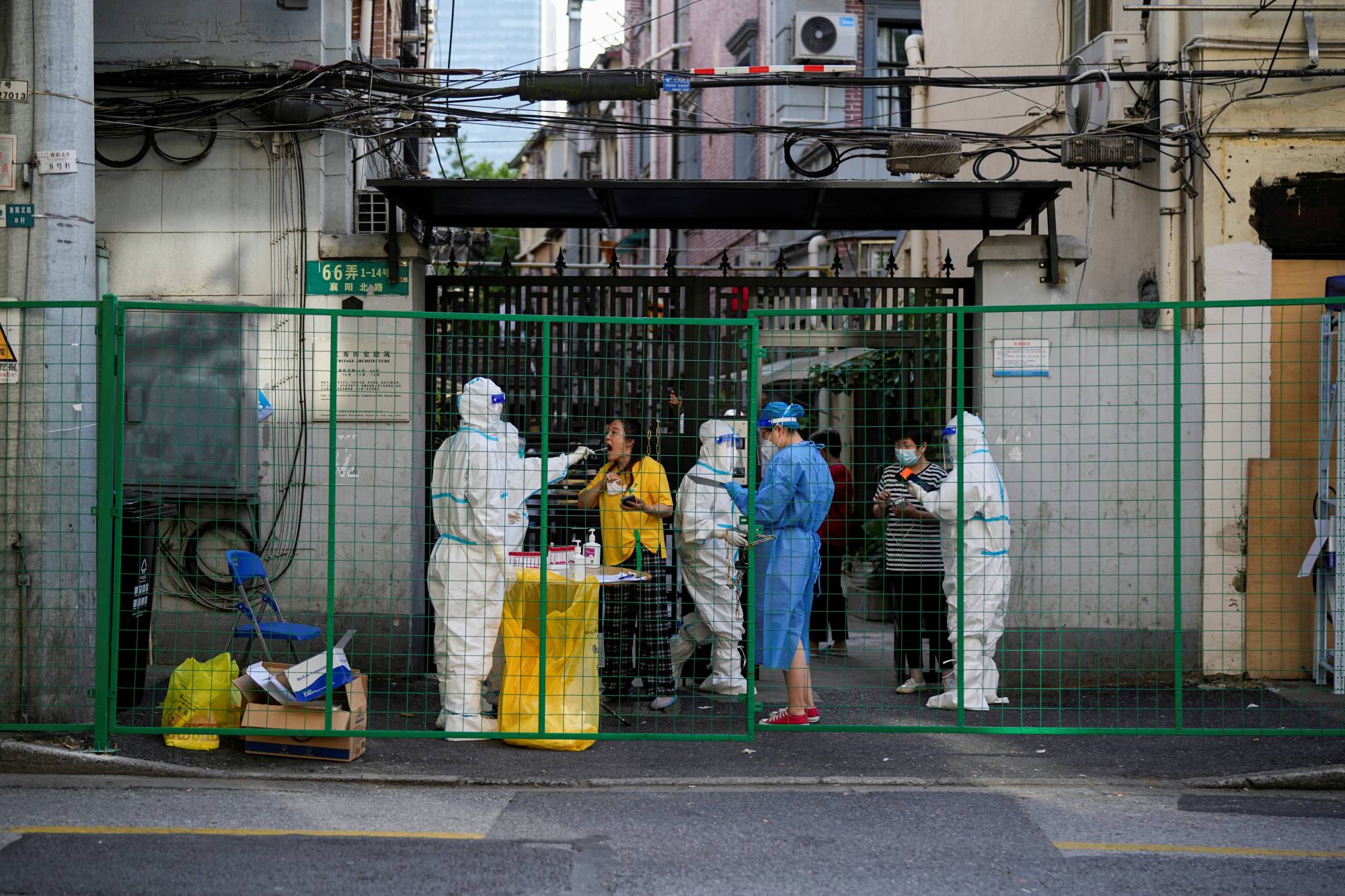Shanghai will lock down a district in the south west on Saturday morning to conduct a mass COVID-19 testing drive, its first major movement restriction since the financial hub exited a bruising two-month shutdown at the start of June.
The mini-lockdown is raising concerns that the city’s reopening is backsliding as officials fear a rebound in cases. While the plan is to seal the Minhang district of 2.65 million people only for the morning, residents face the risk of being confined to their homes for another two weeks if any COVID-19 infections are discovered, in line with China’s "COVID zero" policy.
Elsewhere in the city of 25 million, officials appear to be escalating curbs and placing apartment blocks back under lockdown over the slightest hint of infection risk. Some housing compounds in the central Jing’an and Xuhui districts were sealed for 14 days from Tuesday, although only close contacts — no confirmed cases — were found among residents.



















With your current subscription plan you can comment on stories. However, before writing your first comment, please create a display name in the Profile section of your subscriber account page.